Opening the 2022 PSA CPSU NSW Women’s Conference, new Women’s Council Chair Leanne Smith summed up the excitement in the room: “Its’ been far too long since we have been able to come together.“
Under the theme, Safe, Repected, Equal, the conference was the first held since 2019.
Nathan Moran, Chief Executive Officer of the Metropolitan Land Council, conducted the Welcome to Country, talking about how “90 per cent of Australian indigenous people are led by matriarchs” and praising the pioneering work done by fromer PSA Aboriginal Officer Ann Weldon.
Stewart Little, General Secretary of the PSA/CPSU NSW, said “unionised workplaces will always promote equality” and pointed out the correlation between the high union coverage among Prison Officers with the fact it has the lowest gender pay gap.
But he said while the union movement has done its utmost for pay equity, the “current government has done nothing – only capped our wages”.
President of the PSA/CPSU NSW, Nicole Jess, welcomed the new Women’s Council Executive and praised Leanne Smith and former PSA President Sue Walsh for their work getting still birth leave and the pay equity case through the Industrial Relations Commission, as well as pioneer State Librarian Jean Arnot and the recently deceased PSA Industrial Mananger Kris Cruden.
But she said more needed to be done. “No more excuses: we need equal pay and equal superannuation,” said Ms Jess. “We need workplaces that are safe.”
Shadow Minister for Women, Shadow Minister for Seniors, and Shadow Minister for Prevention of Domestic Violence and Sexual Assault, Jodie Harrison, joined Conference via a prerecorded video link, as Parliament was sitting that day.
“I will never stop working for making NSW safer for women suffering domestic violence,” she said.
While she praised the State Government’s plan for more money for domestic violence, Ms Harrison said she wants to make sure it is spent properly.
“We know domestic violence victims are among us: they can be our colleagues and family members,” she said, adding there had been positive developments in laws dealing with coercive control.
Ms Harrison said increasing the focus on social housing would make it easier for women to escape violent situations.
Cassandra Platts and Jenny Summerton from Dementia Services Australia discussed how their organisation delivers services to people suffering the debilitating illness, including those in remote areas of the country. Dementia is a leading cause of death for women in Australia.
Kath Koschel from the Kindness Factory had Conference in silent awe with her story about her journey from aspiring cricketer to head of an organisation dedicated to encouraging kindess around the world.
Her incredible story included breaking her back in a freak accident while playing state-level cricket, then coming within a day of having her leg amputated as a side- effect of the accident.
LIKE BEES, WE ALL HAVE A ROLE. WE ARE CONTRIBUTING TO SOMETHING BIGGER THAN OURSELVES
During the subsequent rehabilitation, she found love, only to lose that person to suicide.
“I listed the names of everyone who has ever shown up for me in my life; these were the reasons I have to go on,” she said when describing the downward spiral she experienced then. “Feeling gratitude and not expressing it is a complete waste.”
Once rehabilitated, she began participating in triathlons, only to be hit by a drunk driver while training, again breaking her back and again going into rehabilitation to walk again.
She talked about offering the accused drink driver a lift home from court to “lead by example”.
Her organisation, the Kindness Factory now works with schools with its Kindness Curriculum, which includes 12 attributes to help build kindness and a better world.
Another worker for a better world, apiarist Frewoini Baume, outlined her campaign against climate change and talked about the frightening prospect of a world without bees.
Politically active since she was nine, Ms Baume opened up about her generation feeling “guilty about bringing children into a broken world” and “being raised in an era where political identity is more important than leadership”.
When her home town of Lismore flooded earlier this year, Ms Baume was horrified
to see then Prime Minister Scott Morrison “almost sneak around our community”.
“Don’t visit my fractured community to announce funds people won’t be able to access,” she said, challenging him “to approve a coal mine in front of my community”.
She said her youthful naiveté was not a reason for disengagement.
“Like bees, we all have a role,” said Ms Baume. “We are contributing to something bigger than ourselves.”
At the subsequent Women in Male- Dominated Industries panel, PSA Industrial Manager Julie-Ann Bond discussed wage disparity and a lack of flexibility in workplaces. She called on women to hold the Government to account over these ongoing disparities.
Leanne Smith lamented the absence of support networks for women in male- dominated industries such as Ausgrid, her employer. Women’s issues such as stillbirth were still seen as taboo in some workplaces: she was urged not to talk about her own experiences.
Carol Rose from Regional NSW recounted the difficulties being the sole woman field worker. She cited official policies when she first started working, such as bans on employing married women, as well as enduring casual sexism such as being asked if she was there to make the tea.
Vanessa Spitznagel, from the Department of Primary Industries said she hoped more can be done to get men and women working together.
Jillian Butler of the Rural Fire Service (RFS) talked about the frustrations of not being engaged in conversation or taken seriously by men she encountered at work.
“As Training Officer, I’d be asked, ‘What are you going to teach us, girlie?’” she said. “There was more pressure to prove myself as a woman.”
Ms Butler said she created an RFS Women’s Support Facebook group, where she started to see reports of bullying and harassment in the districts. In a subsequent survey she commissioned, she said she found “horrendous results” and got management on board to “start the ball rolling on a new method of complaints”.
Prison Officer Tracey Rule from Corrective Services NSW discussed sexual harassment and being talked down to by superior officers.
She said there was a slow roll-out of uniforms suitable for pregnant Prison Officers, lamenting that women’s complaints would be dismissed as a result of menopause or menstruation.
Even after negotiating four inmates down from a rooftop protest, Ms Rule said she was passed over for a male colleague when applying for a negotiating course.
On day two of Conference, attendees discussed the other women they had met during the event.
One attendee, Belinda Webster from Northcott Disability said events such as Women’s Conference give employees isolated in group homes the chance to “break out of the little area you work in” and feel accepted by other women unionists.
The first major presentation on the second day was from Alicia Pearce of the University of Technology Sydney, where she studied gender equity in the workplace. Ms Pearce’s presentation floated the idea of adjusting the complaints process for sexual harassment to ensure it worked better for people making allegations.
“Why is working in a workplace without sexual harassment not treated like any other workplace entitlement?” she asked the audience, citing a case where a person’s complaints about extreme sexual harassment were found to be credible, but there were no consequences for the perpetrator until media were involved.
Ms Pearce said the complaints- based procedure was not enough and a harassment-free working environment needed to be defined as a collective right. “There has never been a prosecution under Workplace Health and Safety laws for sexual harassment,” she said, adding unions such as the PSA/CPSU NSW have a role in bargaining and Award-setting to set standards for complainant justice.
She said more work was needed to bring parity between those complaining about sexual harassment and those accused of the issue.
She invited attendees to be involved in her research into harassment.
In a warm, engaging, funny speech, Rosemary Kariuki, from NSW Police, recounted her life in Australia since arriving from Kenya in 1999.
An advocate for migrant women, Ms Kariuki talked about being taken in by a stranger when she first arrived at Sydney Airport but suffered loneliness as she adapted to her new country. To combat this, she volunteered to visit other lonely people in aged care homes and meet people. This began her career as volunteer.
Now working with Police in Multicultural Liaison, she asked herself, “Why aren’t South Sudanese, Liberians and Sierra Leoneans accessing services?”
Seeing women cut off from communities, she set up the African Women Dinner Dance with government funding and attracted 350 women to her first event, which included a story from a survivor of domestic violence. More than 20 women subsequently reported violence from their partners.
As a Multicultural Liaison Officer, Ms Kariuki said her role “is to build the trust between the police and the community”.
She said many migrants, due to the political situations that they left, do not see the police as helpful. “People are scared of uniforms,” she said.
Rounding out her speech, Ms Kariuki encouraged people to talk to neighbours and loved ones, citing her determination to turn her street in a new development in Sydney into a thriving social hub.
Arden Cassie discussed gender diversity and challenges of transitioning to a woman. Raised a boy in a religious household and attending a religious school, Ms Cassie talked about how broadband internet opened her to a world outside her tightknit community.
Ms Cassie described the trauma of gender dysphoria, which she suffered as puberty hit, leaving her with a feeling of worthlessness.
By the time “it clicked” and Ms Cassie realised she needed to transition, she was working at a Christian school.
“How it would feel to be told for 23 years that you are a man?” she asked. “What is it that makes me a woman? We are women because we know ourselves to be.
“I was never a woman trapped in a man’s body: I have always been a woman in a woman’s body. I might be different on the details, but it has to be deeper than that.”
Ms Cassie said after transitioning. she felt unsafe in public for the first time.
“Now I was a woman, and I was vulnerable,” she said. “Trans and cis women should be on the same team. When I win, you win, don’t leave us behind, I think we have a lot to offer.”
A panel on insecure work closed the conference, discussing an issue too close to many women’s working experiences.
After the conference, President Nicole Jess said it was wonderful to once again have a forum for ideas so important to the many PSA/CPSU NSW women.
“In the three years since we last met, there has been some progress for women, but, as always, there is so much more to do,” she said
I WAS NEVER A MAN TRAPPED IN A WOMAN’S BODY. I’VE ALWAYS BEEN A WOMAN








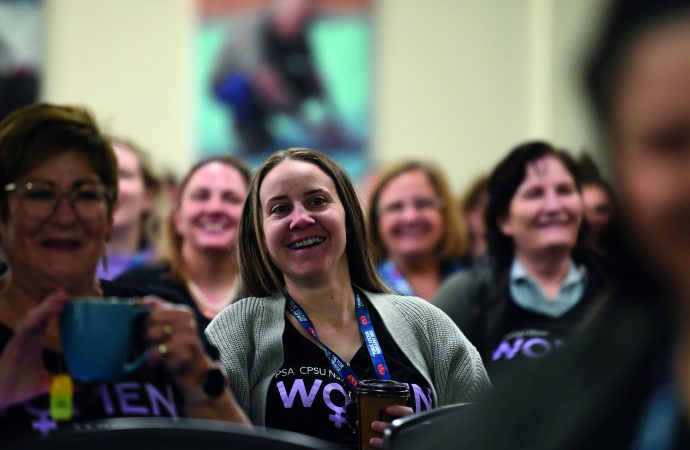
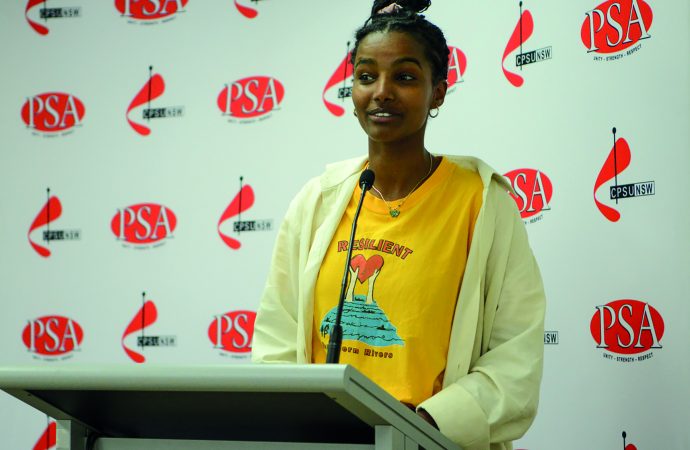
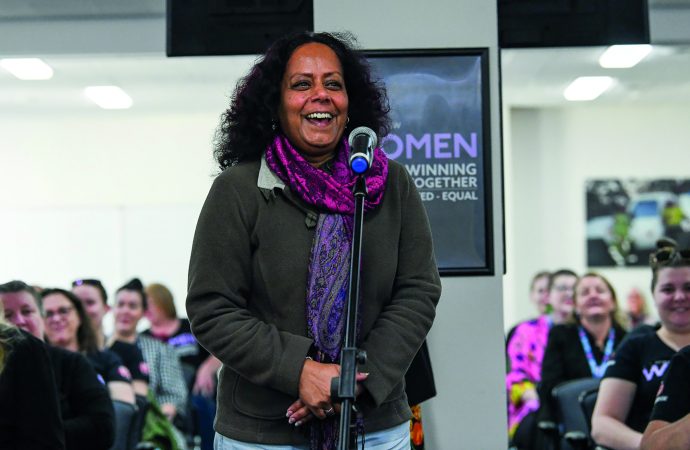
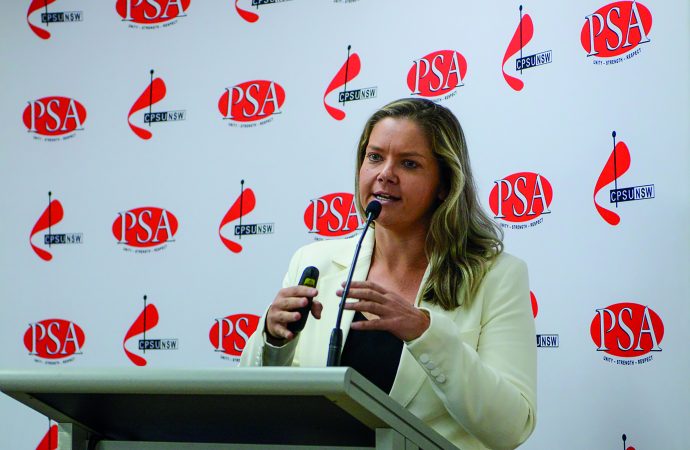
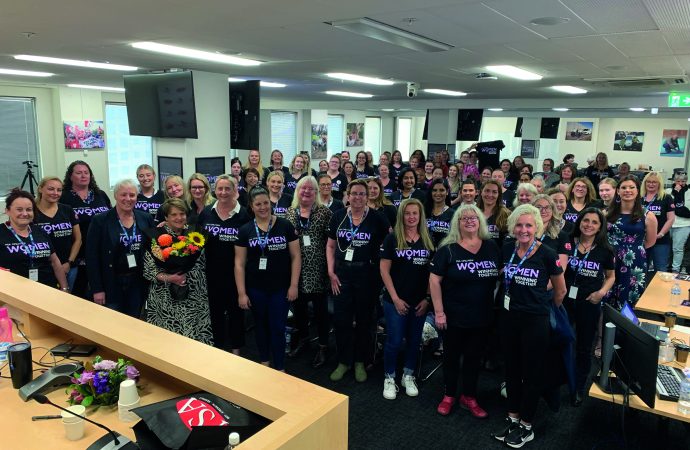

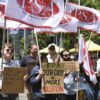
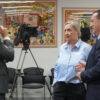
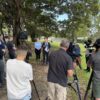

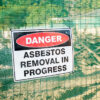

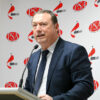

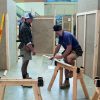
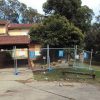

Leave a Comment
Your email address will not be published. Required fields are marked with *